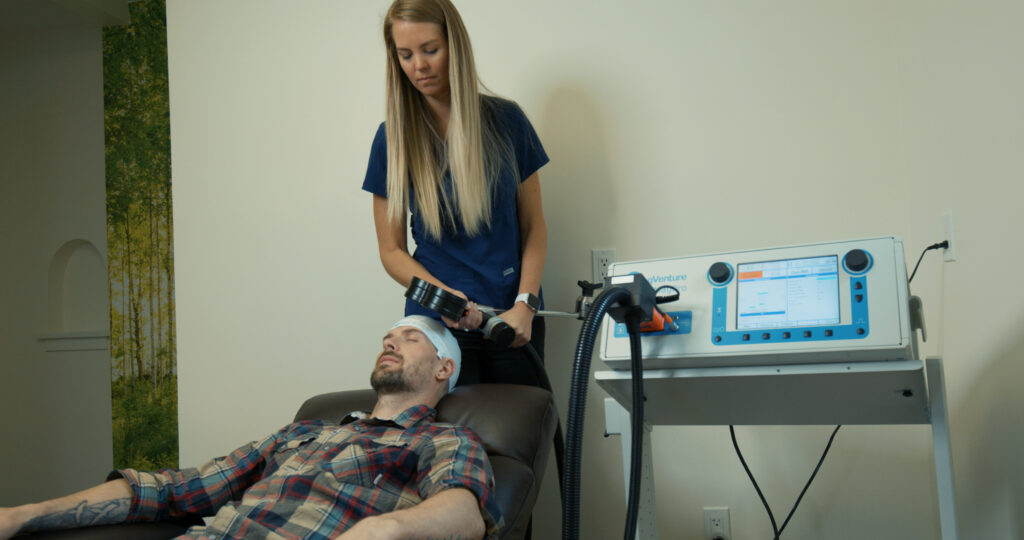What to Expect
rTMS, also known as intermittent theta burst stimulation (iTBS), has demonstrated efficacy for the treatment of major depressive disorder, posttraumatic stress disorder (PTSD), obsessive compulsive disorder (OCD), generalized anxiety disorder (GAD), schizophrenia with auditory hallucinations, impulsive decision making, and gambling addiction. A study found rTMS significantly improved working memory. Currently, researchers are examining the efficacy or rTMS therapy for treating concurrent depression and alcohol use disorders.
Free from Side Effects
Unlike antidepressants, rTMS is free from common side effects such as weight gain and sexual or cognitive dysfunction, is non-invasive, and requires no anesthesia. The world’s largest randomized controlled TMS trial to date found that 49% of the patients responded to the treatment and 32% achieved full remission of symptoms associated with major depressive disorder.
Magnetic Pulses Regulate Mood
An rTMS session involves the placement of an electromagnetic coil against the client’s scalp, near the forehead. A magnetic pulse stimulates nerve cells in the area of the brain that regulates mood. Patients may resume daily activity right after treatment. In 2002, TMS therapy was approved by Health Canada.
Sunshine Coast Health Centre uses the Express TMS® device manufactured by the Danish company, MagVenture. In 2018, MagVenture received US Food and Drug Administration (FDA) clearance for Express TMS®. Express TMS is the only product approved by the FDA to deliver 3-minute theta burst stimulation (TBS), which is equivalent to rTMS.
rTMS sessions are available to both clients of Sunshine Coast Health Centre and the Georgia Strait Women’s Clinic. A typical rTMS treatment course using Express TMS® is 10 to 20 sessions.
Contact us for more information about how we use rTMS to treat addiction.
Get Help Today.
Our team is ready to help at any time. Reach out whenever you’re ready.




